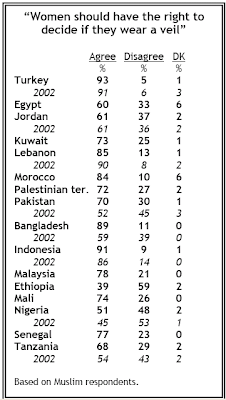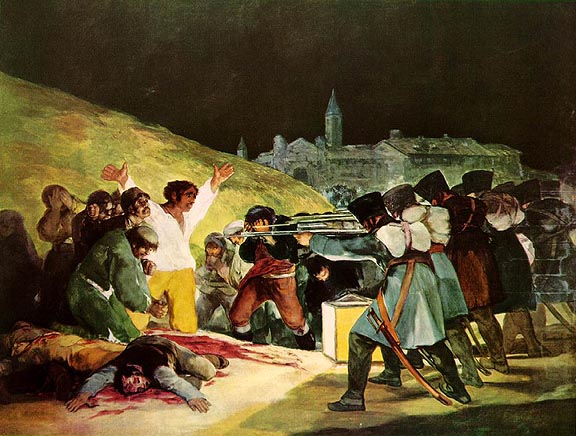Pakistan seems to be really bad for women in terms of economic participation and opportunity (a measure which includes labor force participation, wage equality for similar work, income, legislators, senior officials and managers, and professional and technical workers), educational attainment (literacy rate, and enrollment in primary, secondary and tertiary education), and health and survival (sex ratio at birth and healthy life expectancy).
This is grim indeed. The question that comes to my mind though is why does Pakistan fare so poorly? The data shows that there are numerous Islamic countries far ahead of Pakistan, and there are countries poorer than Pakistan which also are better. So easy answers like "It's because of religion" or "it's because of economics" don't really apply.
Out of curiosity I checked to see how Pakistan ranks in per-capita GDP compared to some of the other countries on the list. Fareed Zakaria argues in his book, The Future of Freedom, that liberal rights should be correlated with this measure (among other things - the book is highly recommended). Wikipedia has a list of countries ranked by per-capita GDP (normalized for "purchasing power" to even out currencies) using data from the International Monetary Fund, and we see that Pakistan is pretty low on the list:
| Rank | Country | per-capita GDP |
|---|---|---|
| 4 | United States | $43,223 |
| 70 | Turkey | $9,240 |
| 110 | Egypt | $4,895 |
| 118 | India | $3,802 |
| 132 | Pakistan | $2,744 |
| 144 | Bangladesh | $2,130 |
| 163 | Afghanistan | $1348 |
| 170 | Yemen | $984 |
Note that Yemen and Afghanistan do rank below Pakistan here, but they were not included in the Pew survey. Almost all of Africa ranks below Pakistan, but the African countries surveyed still fare better on the Pew questions (particularly the marriage choice issue). I haven't made the effort to see where the African countries fall on the Gender Gap Report, as that is as much a function of poverty and war and hence my assumption is that the African countries will fare worse overall.
So what is going on here? Though I have no doubt it will be spun otherwise by the jafisphere, Islam is clearly not the causative factor. Additional evidence is in the surprising result from Pew on the question of whether a woman has the right to decide whether to wear the veil or not (see chart below - click to enlarge). Pakistan is fairly moderate and has become even more so in the past five years, whereas countries in the middle east have actually regressed. So the attitudes towards women are at least partially separable from attitudes about religion.

The answer probably lies in tribal attitudes. As far as I am aware, Afghanistan and Pakistan have stronger tribal identities than in most of the rest of the world, and given how much of these states are still frontier, the ability of the government to ameliorate and dilute tribal allegiances and values is close to nonexistent. Much of the region exists in a pre-Westphalian condition, which is also why it remains a natural haven for Al Qaeda. In that sense, the situation for women is probably going to remain unchanged until the attending situations of stability, law and order, and liberal rights and freedom are addressed first.


 Most people in Muslim countries and the West believe divisions between them are worsening, a Gallup poll for the World Economic Forum (WEF) suggests.
Most people in Muslim countries and the West believe divisions between them are worsening, a Gallup poll for the World Economic Forum (WEF) suggests.